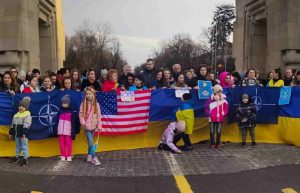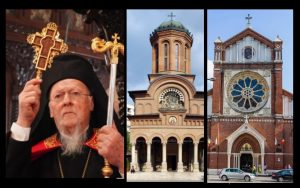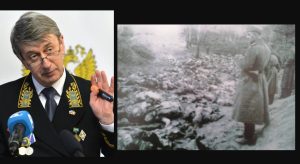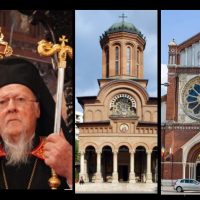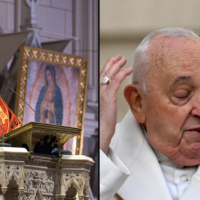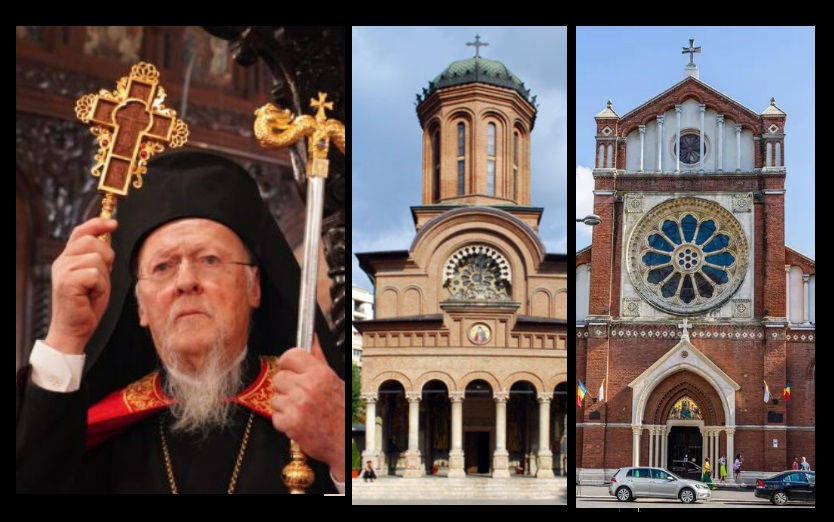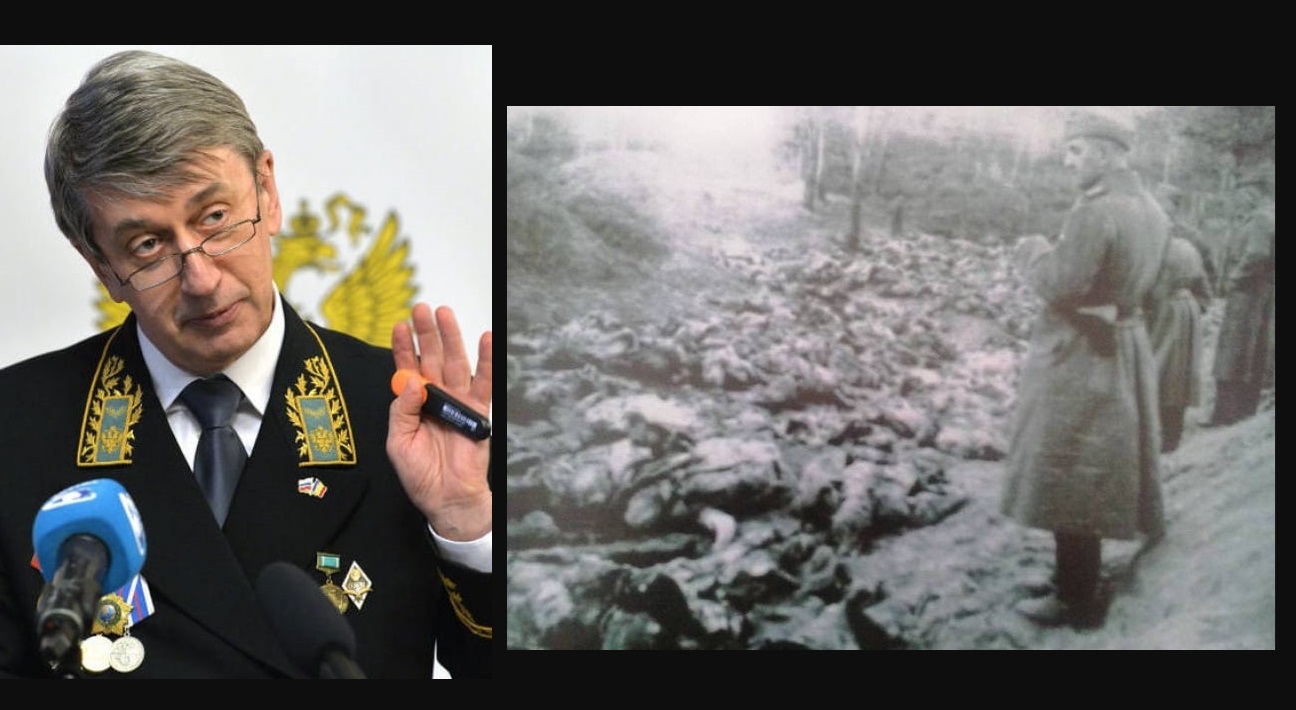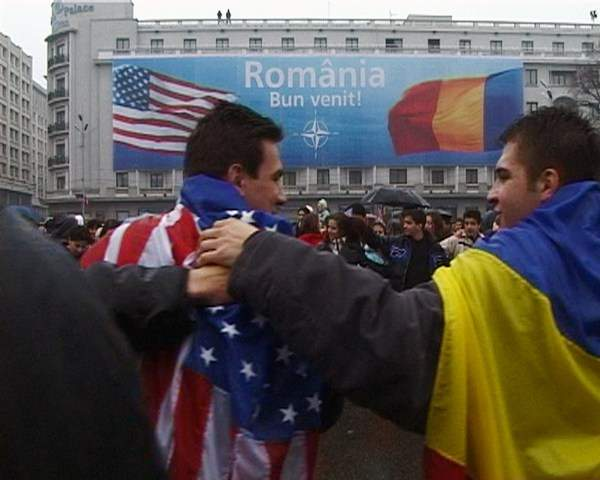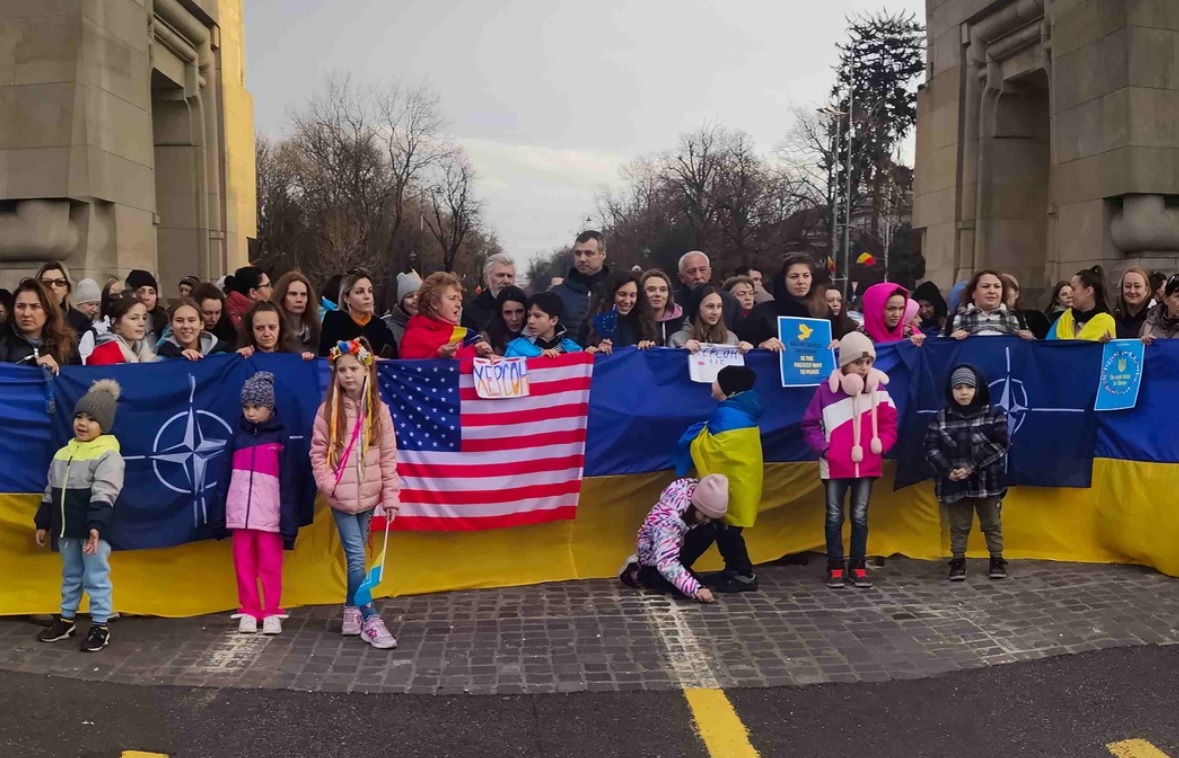Educaţia islamistă continuă cu îndoctrinare din Syed Qutb, cel mai influent ideolog al Frăţiei Musulmane. Ed Husain preia conducerea societăţii islamice a liceului şi în şase luni reuşeşte să-i radicalizeze pe elevii musulmani şi să demonstreze incapacitatea conducerii liceului de a i se împotrivi.

Islam is the solution
I have written Milestones for this vanguard [Islamists], which I consider to be a waiting reality about to be materialized.
— Syed Qutb, Islamist ideologue
Karl Marx and Friedrich Engels had declared in the Communist Manifesto that the ‘History of all hitherto existing society is the history of class struggle’; as Islamists we believed that history was a clash between good and evil. We represented the former, the West the latter, and we had to prevail. Assassination attempts on Mawdudi’s life and the stories of martyrdom that reached us from Afghanistan of jihad against the Soviets convinced us that ‘true Islam’ had to be in perennial conflict with kufr – the disbelief of the kuffar. And so we were critical, derogatory even, of organizations such as the Tablighis who engaged in missionary activities in the Soviet Union – true Muslims should be persecuted by the Soviets, not accepted. To us, being a Muslim meant being in conflict with non-Muslim society. How could an atheistic society allow the Tablighis to preach Islam? That very fact allowed us to pour scorn on the Tablighis. Some of our leaders even claimed that the Tablighi group was sponsored by Moscow to pacity Islam. The Tablighis retorted by saying we were sponsored by Saudi Arabia and, thus, America to politicize Islam during the Cold War.
Our discussions inside the mosque and in various meetings did not come out of the abstract. Those of us who read material from Islamist writers knew that the world we espoused was underpinned by the writings of Mawdudi and another, more crucial, character: Syed Qutb.
Syed Qutb was a name I first heard from YMO. I knew that Mawdudi had laid the intellectual basis for drawing the battle lines between Islamism and all other systems of thought. Just as his ideas were propagated in English-speaking countries by the Islamic Foundation in Leicester, they were disseminated by several Arab organizations in the Middle East in search of an ideological alternative to Arab socialism, nationalism, and 0Jasserism. Syed Qutb, a middle-aged Egyptian bachelor and literary critic, rose to the challenge.
When Hasan al-Banna, the leader of the Egyptian Muslim Brotherhood, was assassinated in 1949, the Brotherhood became an orphan movement. Qutb became more than its adoptive father – he became its chief ideologue. Hardened by social isolation in the United States, he became an ardent anti-Westerner. His stance was further radicalized by his terrible experiences in Nasser’s prisons from the late 1950s onwards. The horrendous, inhumane torture Qutb and other members of the Muslim Brotherhood experienced resulted in Qutb smuggling Mlilestones, the Communist Manifesto of Islamism, out to the wider world.
In YMO Milestones, along with Qutb’s personal commentary on the Koran, was mandatory reading. When I read Milestones I felt growing animosity towards the kuffar. True Muslims had been defeated by the imperialists and their agents, the rulers of the Muslim world. We had to regain the upper hand in Muslim countries and reject the culture of the West. Qutb spoke about his own experiences in America, and declared that a total jihad was the only way to remove the disbelieving presidents and princes of the Arab world.
From what I understood, Qutb had adopted Mawdudi’s paradigm, but developed it much further. Mawdudi was prepared to make concessions to the West, gain power for Islamism via parliamentary democracy while infIltrating the army simultaneously to ensure that, once power had been grasped, the military would be supportive. Qutb, however, declared all-out war. There was no room for gradualism in Qutb’s prescription for changing the world.
Egypt’s prisons in the I950s and I960s served as a networking forum for Islamists of various persuasions. Qutb, heavily influenced by Mawdudi’s writing, met a group of Muslims who helped him further crystallize his thinking. Soon I was to learn who this particular group of people were. Ideas, intellect, thought, challenge, systems, concepts, destruction, construction were key words discussed by them with Qutb which he then introduced in Milestones. For writing this book, Qutb was hanged by the Egyptian government in I966.
The Koran repeatedly reminds us that the vast majority of the world’s population will not become believers, in the Muslim sense. It accepts religious diversity, creedal plurality. Koranic verses include such Prophetic declarations as ‘to you your religion, and to me mine’. However, to Qutb, this was unacceptable. ‘Islam is not merely „belief”,’ he wrote. ‘Islam is a declaration of the freedom of man from servitude to other men. Thus it strives from the beginning to abolish all these systems and governments which are based on the rule of man over man.’
We sat in the East London mosque and discussed at length how Hasan al-Banna and Qutb had given their lives to the movement; how they had stood steadfastly against the disbelieving governments of the Muslim world; and how we had to gain popular support of the Muslims to remove these regimes, and create God’s government on God’s earth, or, as Mawdudi put it, ‘Allah’s law in Allah’s land’. However, seizing political power by the ballot box was not our only option. The Islamization of powerful elements of society would ensure that in the end, if need be, our counterparts in the Muslim world would take power by force.
Now I was convinced that Grandpa and the majority of the world’s traditional Muslims were on the wrong path. How could they coexist with jahiliyyah, the ignorants, as the Koran called the pagan Arabs of pre-Islamic Arabia? Qutb taught us that the Prophet had declared war on the infidels of Mecca because it was in the nature of Islam that it must dominate. In Milestones the world was divided into two: Islam and jahiliyyah, or Dar al-Harb and Dar aI-Islam. Just as in seventh-century Mecca, today’s world was divided into these two camps: the half-believing Muslim world and the rest of the non-believing world, on whom we declared war. Where Mawdudi advocated gradual change by takeover of parliament, the military, and various arms of the modem state, Qutb declared jihad against the jahiliyyah. Where Mawdudi questioned the belief of the Muslim rulers, Qutb declared them infldels, on a par with pagans. It was the expression of these sentiments, and the ferocious advocacy of violence against the Egyptian and other Arab governments, that led to his death, and the birth of a fully formed Islamist ideology.
Qutb was a martyr, a hero. His life and death gave us inspiration to continue with the work of changing the world, bringing Islamism to power, as he and Mawdudi had wanted.
In the malaise of the I960s Middle East, the confusion of conflicting ideologies, the Muslim Brotherhood had coined the popular phrase, ‘ai-Islam huwa ai-hall’, ‘Islam is the solution’. To ordinary Muslims this had a certain resonance. The power of Islam over its adherents is absolute and, as people who played politics with Islam, we knew how to deploy religion to manipulate the emotions of its followers.
On my bedroom wall I had a sticker from Jamat-e-Islami which bore the following quote from Hasan al-Banna:
Allah is Our Lord.
Mohammed is Our Leader.
The Koran is Our Constitution. ]ihad is Our Way.
Martyrdom is Our Desire.
One day my father saw that sticker and broke out in tears.
He was in no position to threaten me, but neither could he silently watch me manifest my commitment to the Islamic movement. He said to me, ‘My son, the Prophet is not our leader, he is our master, the source of our spiritual nourishment. Leaders are for political movements, which Islam is not. The Koran is his articulation, as inspired by God, not a political document. It is not a constitution, but guidance and serenity for the believing heart. How can you believe in these new definitions of everything we hold so dear? ]ihad is a just war against tyranny and oppression, fought by the Prophet after persecution, not „a way”. Why do these people call for martyrdom when their sons are in the best universities across the West?’
Then, in highly personal terms, my father spoke about the sons of leaders of the Islamist movements, almost all of whom had received a good education in Britain or another Western country. He cited Gulam Azam’s son, a graduate from Manchester University and working for Hackney Council, and others who were in business. He argued that ordinary Muslims like me were caught up in jihad and martyrdom. Factually, my father was right. Hasan al-Banna’s own offspring lived in the comfort of Switzerland. But I knew that al-Banna and Qutb had dedicated their lives for the movement; they were my examples, not Gulam Azam’s sons. That night I heard my father weep profusely and pray in a loud, pained voice to God after dawn prayers.
At Tower Hamlets College a revolution of sorts was underway. During my first year there a group of student Islamists had come up with a novel idea for a high-profile event at the main campus in Poplar. Their advertising technique was adapted from that used by motor manufacturers when launching a new model: initially covered in a white sheet, it is slowly unveiled before a curious public. The president of the college Islamic Society at that time was a mature, sedate student who was also a member of Islamic Forum Europe. Although there were other Islamist groups at the college with whom we were in conflict (such as the despised Dawatul Islam group), we were keen to present a united front, particularly to the detested kuffar. To a large extent we achieved that objective; indeed, the presentation of a united Islamist front to the outside world continues today.
Away from the bickering elders of the East London mosque, as time passed the YMO contingent at Tower Hamlets College worked well with our rival Islamists. Ater all, we shared a common ideology and veneration for Mawdudi and Qutb and we all despised traditional Islam.
Together we worked under the religious banner of the Islamic Society, knowing full well that it was a front organization for political Islamism. We began our campaign with posters on every college notice board, classroom door, and staircase which read:
Prophets of Islam:
Adam
Noah
Abraham
Jacob
Joseph
Moses
Jesus
Mohammed
What is Islam?
Within days, there were complaints from Jewish teachers and students that these were Old Testament prophets. Immediately, the seeds of conflict were sown. In an attempt to promote Islam we had offended Jews, even Christians, by claiming that their religious figures were, in fad, ours. The Islamic Society was the subject of conversation in every class. We drew back the sheet a little further each time with a series of provocative posters, all of which ended with the ‘What is Islam?’ punchline. The revelation came in our final poster, again plastered all across the college and even on lampposts in the street outside:
Islam: The Final Solution
There was uproar on campus. The entire teaching community was outraged. Time and again the principal’s assistant came to see us in the prayer hall (our gathering place) to remind us that the college was a secular institution. For most of us the word secular had no meaning. We were Muslims – full stop. Our Islam we wore proudly on our sleeves.
Islam was the solution for all the world’s ills. As Islamists, our contention was that the world had been failed by capitalism and communism, as Qutb had so eloquently put it in Milestones. Islam’s era had now arrived. But we knew that it would not come to pass peacefully.
Our teachers pointed out that Adolf Hitler had made exactly the same claim as a prelude to murdering 6 million people, mostly Jewish, in the Holocaust. In our minds, that was coincidental. We failed to comprehend the totalitarian nature of what we were promoting. Besides, deep down, we never really objected to the Holocaust. Indeed, in the prayer room we were convinced that the college principal, Annette Zera, as well as several other members of the management, were Zionist agents. Without question we despised Jews and perceived a Jewish conspiracy against our nascent Islamic Society.
As Islamic Society president I had a ten-member committee, which met once a week, planned events, and then critically evaluated the successes and failures of every gathering. I chaired the meetings, minutes were taken, and decisions were acted upon. We ran the Islamic Society like a military operation: we had a chain of command and a clear vision of where we were headed. Last year’s successful campaign was still in the air and we were determined to build upon it. I was now promoting Islamism every day, at college, in my private life, and in public with the YMO.
However, there was more to it this time round. Before the term started, the then president of the YMO, Habibur Rahman, an IT lecturer at CityPoly, had gone to great lengths to arrange a two-hour meeting with me. I had no idea why. We sat at the large meeting room in East London mosque and he asked, ‘How is your daily routine sheet?’
‘It could be better,’ I replied. ‘You know, my parents still aren’t altogether happy with me, so I have difficulties helping out in office hours, or praying at mosques, or attending the taleemi jalsa.’
‘How long do you envisage this situation will continue?’ he asked.
‘My father has eased up since I went back home, but now I feel as though I should try, at least, to maintain some peace there.’
‘OK. I understand your parents have problems with the Islamist movement, but where do you see yourself in, say, ten years’ time? Do you still think you’ll have problems at home?’
‘Hopefully, by then, my parents will have overcome their fears. You know, my parents are planning to move out of Tower Hamlets very soon, mainly to get me away from this mosque, though I’ll continue to travel here anyway. But honestly, in the long run, let us pray that my parents relax more.’
‘How are your studies?’ he asked. I was both intrigued and flattered by his interest. To get so much attention from the leader of YMO was an honour for me; he was a busy person, with nearly a hundred young, committed men at his command .
‘Not bad,’ I replied. ‘And how is college life?’
‘Well, as you know, we held that talk last year. This year we’re hoping to hold more such events. Introduce Islam to the students, do more da’wah work.’
Da’wah was an Arabic word I had learnt while I was at YMO. The Islamist equivalent of evangelism, it literally means ‘invitation’, a call to Islam. I remember Grandpa was always against da’wah to Muslims, the primary work of the Islamist movement. He always asked how we could call to Islam those who already believed. Yes, Muslims may need reminders of their sense of duty to God, like believers of any religion, but da’wah was not a term I heard used among Grandpa’s community of moderate Muslims. In YMO, however, da’wah was key. We organized everything, from tournaments to camps, for da’wah. Our events at college were da’wah, calling students to Islam, or rather Islamism.
The Islamic Society at college was an avenue for us to carry out more da’wah work. We never stopped to ask how we could possibly be doing da’wah in a college that was predominantly Muslim. And if it was our non-Muslim teachers we sought to convert, then presenting Islam as the ‘final solution’ was hardly the best way to do it. No, in our context da’wah really meant getting people to join YMO or Islamic Forum Europe, become part of the Islamist movement or at least support it. I, as Habibur Rahman pointed out, had lost sight of this aim, seeking only to ensure that Islamism was the dominant force at college. The YMO president wanted more.
‘And how do you anticipate the da’wah will be this year?’ he asked.
‘We have a strong Islamic Society committee. Inshallah, most of the brothers are members of YMO, though we have three who are from other groups. But as president I call the shots, approve the speakers and events.’
‘OK. You organize events, create a stir, and then what?’ ‘What do you mean?’ I asked, genuinely confused.
‘You are a member of YMO. What is the connection between the work you will do at Tower Hamlets College and YMO?’ Now I got it. Or so I thought.
‘To be frank, it is because of the training I got at YMO that I am able to manage the Islamic Society. Organizing events was something I learnt from my involvement with YMO. And most of the Islamic Society’s committee members are from YMO. So I suppose that link is there.’
He gave me a wry smile. I still had not understood what he meant.
‘I appreciate that,’ he said. ‘And we from outside the college are happy to support the da’wah in whatever capacity. But there needs to be a clearer aim for YMO workers like those of you who are leading the Islamic Society at college. All those young people who attend your events, what happens to them afterwards? Yes, you create an interest in Islam, hopefully in the Islamist movement, and then where do they go? Do you see what I mean … ?’
Habibur Rahman’s purpose had now become clear: I was to use the Islamic Society as a recruiting agency for the YMO.
We discussed how this could happen. How it would aid YMO’s desire to expand into the wider Muslim community outside the East London mosque. I was sitting with the head of YMO, planning a recruitment campaign for the Islamist movement. My aims were now clear. I had my orders. Habibur Rahman ended the meeting with a smile, his initial anxiety laid to rest. I had reason to be happy too: my main arena for da’wah work was no longer East London mosque but Tower Hamlets College. My parents would be relieved when I told them that, henceforth, all my attention would be focused on my college work.
During enrolment week in 1992 Falik and I plastered the college with posters making it clear to new students where the prayer room was. We also published a magazine: The Reality. Every new entrant was welcomed by Brother Falik, me, or another member ofYMO, under the guise of the Islamic Society. Right from their very first contact with the college they went away with our literature, knowing who we were.
Most students travelled to and from the Poplar campus by bus, walking from the bus stop on the East India Dock Road via Poplar Park. There, they walked past gold-painted graffiti proclaiming ‘Islam is the Solution’ and, beneath that, ‘YMO’. There was no mistaking who was the dominant force in Tower Hamlets College. It amused me to see the faces of some of my old classmates from Stepney Green as they wondered at my transformation from school misfit to powerful student leader with hordes of adoring followers.
At college, as at Stepney Green, all of my friends were Asian, Muslim, and male, but now it no longer seemed odd that I, born in Britain, did not have a single white friend. The happy melting pot that Ms Powlesland had stirred at Sir William Burrough was no more than a distant childhood memory.
We organized fortnightly talks on Wednesday afternoons, video presentations, and hard-hitting seminars: ‘Hijab: Put up or Shut up’ was one controversially titled discussion on wearing the veil.
Again our teachers were outraged, but our work was yielding results. To packed halls we brought speakers from different Islamist groups who explained why women must cover their hair, be different from non-Muslim women, and earn God’s approval.
At the time there were a handful of young Muslim women at college who wore the hijab. This commanded my full support, but questions from teachers, and sometimes students, made the practice increasingly confrontational. We put pressure on unveiled Muslim women to join the ‘sisters’ who wore the hijab or risk being seen as un-Islamic rather than practising, proud Mluslims. The resultant upsurge of hijab wearing took even us by surprise as scores of fashionable free-flowing hairstyles iisappeared from view. (If the hijab was supposed to make a woman less attractive, then it clearly had not worked. Several society members commented to me that the women looked extraordinarily feminine and more desirable in the scarf than without. I shared that sentiment, but dared not express it.)
In every classroom, common room, and public area in college there were clusters of Muslim women in hijab, confident in their mannerisms and superior in their bearing. They were our sisters, linked to the most powerful and dynamic student club: The Islamic Society. We, in turn, were attached to the YMO, and so to Jamat-e-Islami, part of the world-wide Islamist movement whose aim was to make our ideology supreme. We acted locally, but were connected globally .
At prayer times, the small prayer room provided by the college management so generously the previous year no longer sufficed. We needed a larger hall, and demanded it from the college authorities. At first, in meetings with the management, I was told repeatedly that Tower Hamlets College was a secular institution and would not provide religious facilities. But that was a difficult argument to sustain. Moreover, by providing us with a small prayer room in the newly refurbished building, despite there being a community mosque a minute’s walk from college, the management had set a precedent. We did not want to pray at the mosque because there we were powerless; at college, we could organize our own speakers and rally the Muslims around us.
Several meetings with the vice-principal came to nothing.
His refusal to provide us with larger prayer facilities emboldened our sense of purpose. The Islamic Society committee had lengthy meetings about what to do next. For us to back down would be a defeat for the Islamist movement, not something I was prepared to consider. Our response to management inflexibility broke new ground.
One lunchtime we gathered about seventy students outside the prayer room, gave the loud call to prayer, the adhan, and prayed in the open space in the centre of the campus. Most of the students were ordinary Muslims, not Islamists, but we provided direction and leadership. As president of the Islamic Society I led the prayers. As we prayed I sensed our numbers growing as others started to join us. I ended the prayer and caught a glimpse of the horrified members of the management team looking on, unable to believe what they had witnessed. It was like a scene from Tehran on the grounds of a ‘secular’ college in London. How were they to put the genie of Islamism back in the bottle?
Management demanded to see the committee immediately.
Again, we missed our classes and held protracted negotiations. I was told not to make threats, but I knew I held the whip hand: with prayers under attack at Tower Hamlets College we could mobilize the wider Muslim community, rally East London mosque and YMO behind us, and cause major embarrassment for the college. In the event, management backed down, provided us with a larger room, and even agreed to clear the furniture for us before Friday prayers. We had won.
In six months we had changed the entire atmosphere at college. The dynamism we had created at Tower Hamlets was now spilling out into the community. The sisters who wore the hijab put their mothers and older siblings to shame. The wearing of the headscarf by my mother’s generation was not usually practised until later in life, much like women in some Orthodox Christian countries, but the fact that young, educated, confident women at Tower Hamlets College wore the hijab in droves sent a message to the wider community. They saw our sisters on buses, on the roads, and at weddings, and slowly the hijab became a symbol of defiance of Western values and of a return to Islam.
It was, again, much later in life that I learned where the hijab really came from. The headscarf was worn by Christian and Jewish women in the Levant. The Prophet Mohammed had not invented hijab, merely adhered to the dominant dress code of his time. To this day, observant Amish, eastern Orthodox and married Jewish women wear hijab, too. We were ignorant of these facts: to us, it was Islam at its best, something the Prophet had invented .
Our dynamism had reverberations in sections of the student population that we had not known. Our magnetism and vitality drew people to us. A college security guard, after detailed discussion with our members, converted to Islam. Soon his wife converted too. A female student who had attended some of our events, and spoken to me at length about Islam, also converted. There were plentyof others who looked on dismayed at what we had done to the college: a visible Muslim presence was everywhere, women veiled, ubiquitous posters of Islam, and the student population, almost without exception, under our control.




